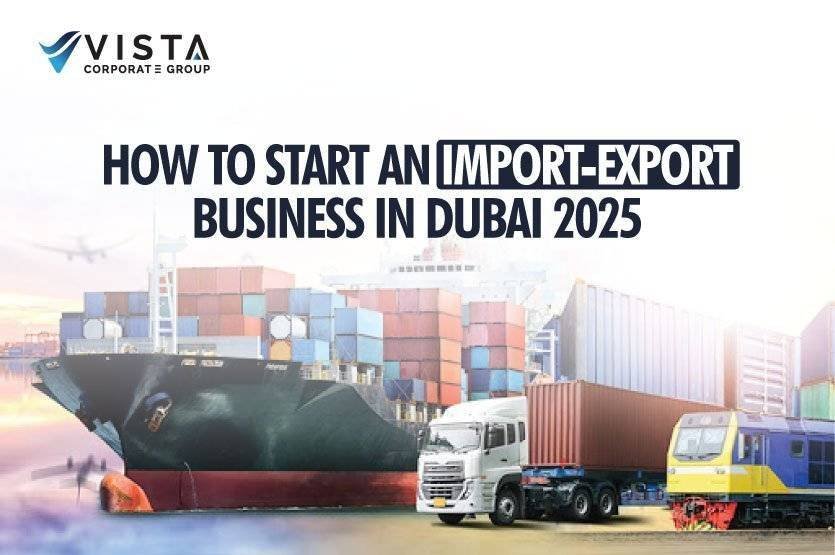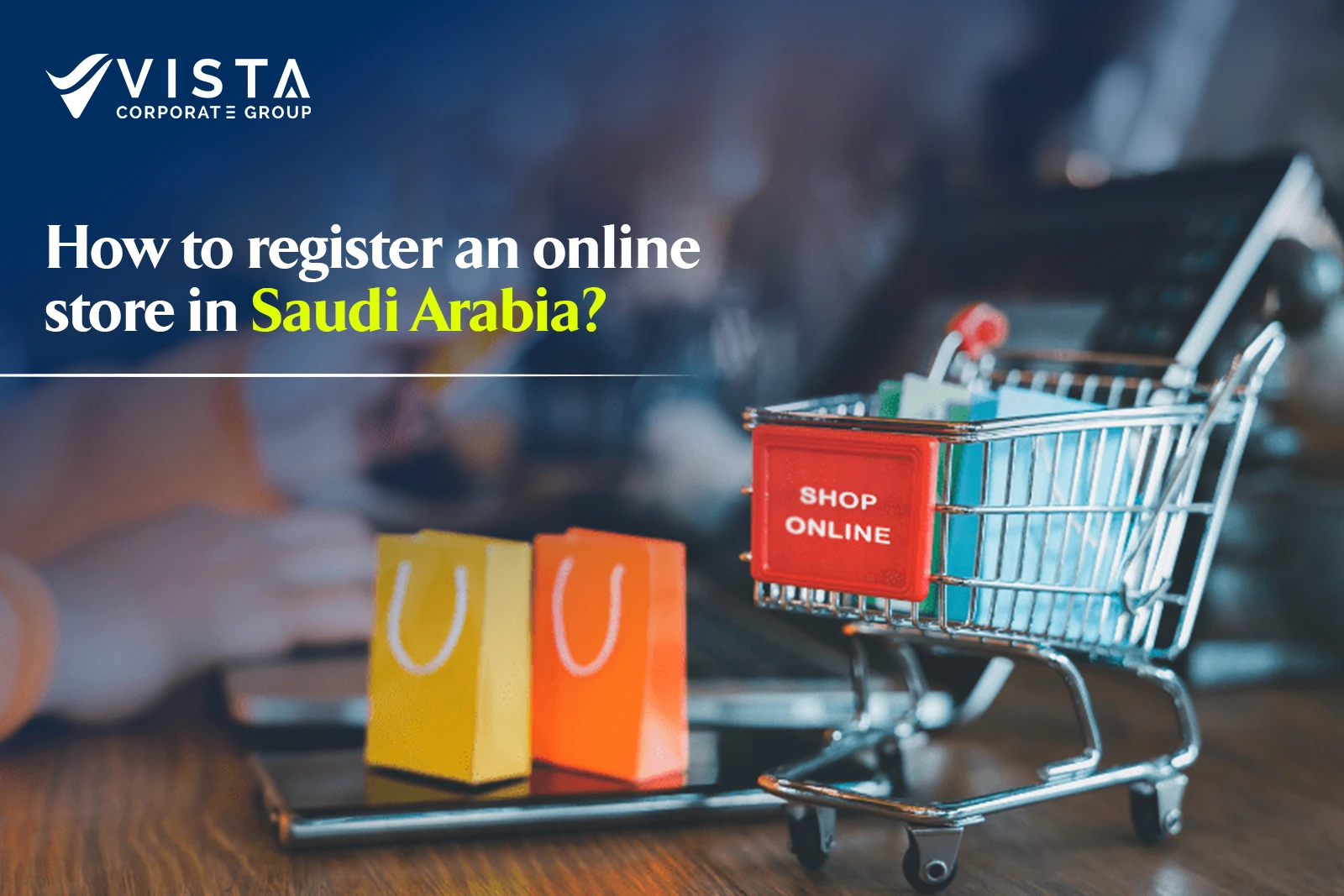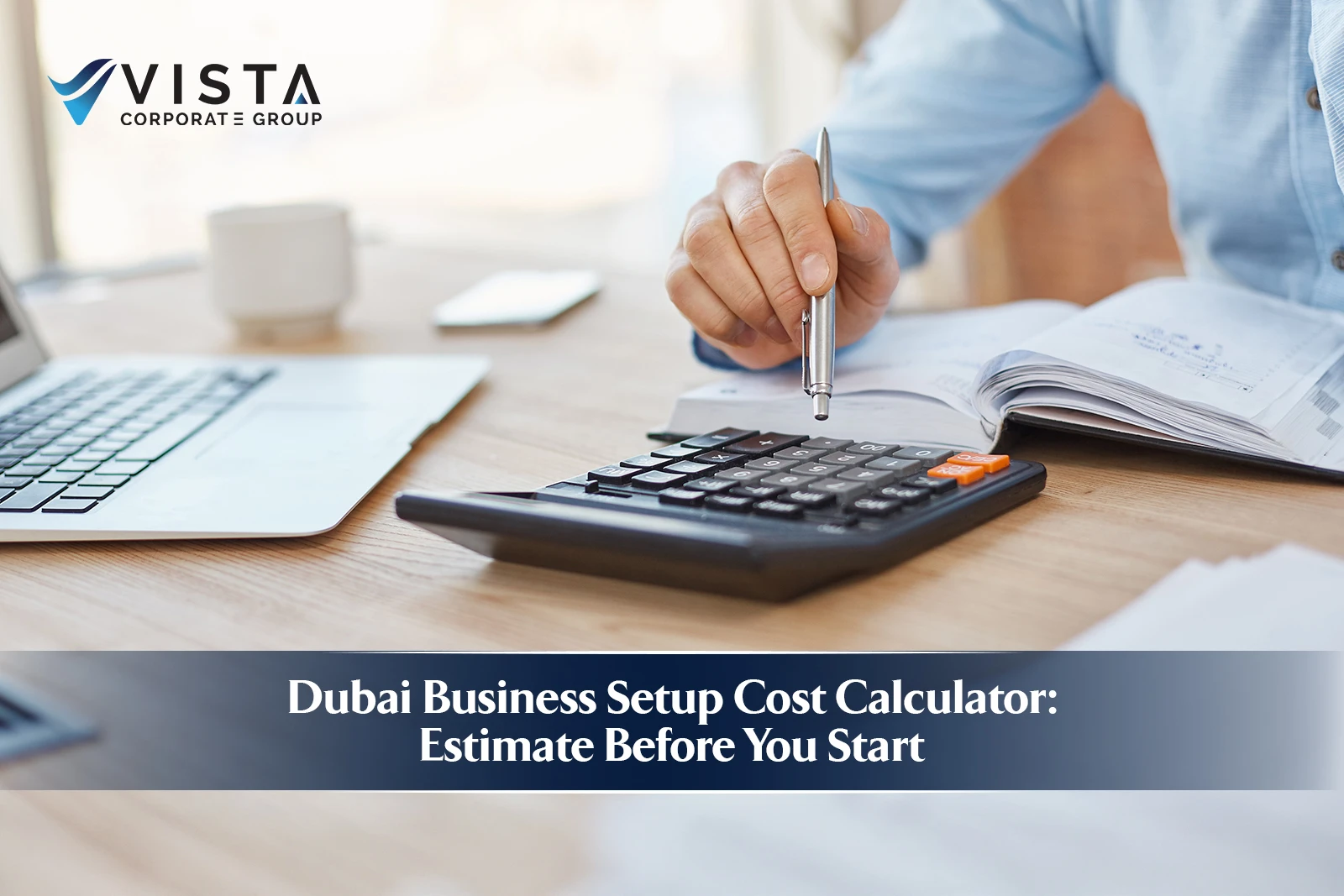
Dubai has long stood at the crossroads of global trade, linking the East and the West. In 2025, it continues to solidify its position as one of the most strategic hubs for international commerce. With world-class ports like Jebel Ali and top-ranked airports, Dubai offers unmatched logistics infrastructure, making it a prime location for launching an import-export business. Starting an import-export business in Dubai is not just about setting up a company—it’s about tapping into one of the fastest-growing trade ecosystems in the world. Whether you want to trade electronics, fashion, automobiles, or food products, the emirate offers a dynamic market with access to over 2 billion people across the Middle East, Africa, and Asia. With transparent regulations, minimal taxes, and investor-friendly free zones, Dubai is making it easier than ever for new entrepreneurs to enter the import-export market.
Why Choose Dubai for Your Import-Export Business?
Dubai isn’t just another city — it’s a global trading powerhouse. Its unique geographic location connects Asia, Europe, and Africa, allowing businesses to tap into a market of over 2 billion people within a four-hour flight radius. This strategic position makes Dubai the ultimate gateway for import-export businesses looking to expand their reach across continents. The emirate’s investment in world-class infrastructure like Jebel Ali Port, one of the largest and busiest ports globally, and Al Maktoum International Airport ensures that goods move faster, more efficiently, and more securely. Additionally, Dubai’s Free Zones offer 100% foreign ownership, zero corporate tax (for most sectors), and easy customs procedures, making the setup process straightforward for new entrepreneurs.
Government initiatives like “Dubai 2040 Urban Master Plan” and “Dubai Silk Road Strategy” further strengthen its logistics and trade ecosystem, promising even more opportunities for import-export companies in 2025 and beyond. Whether you’re a small startup or a multinational trader, setting up an import-export business in Dubai gives you a competitive edge that’s hard to match anywhere else.
Understanding the Import-Export Business in Dubai
Before diving into the setup process, it’s essential to understand what running an import-export business in Dubai actually means. In simple terms, import refers to bringing goods from abroad into Dubai for sale or distribution, while export means sending locally sourced or manufactured goods from Dubai to other countries. Dubai’s open economy, low tariff barriers, and massive logistics network make both importing and exporting highly lucrative ventures. The types of products commonly traded include electronics, automobiles, gold, diamonds, textiles, construction materials, and food products. With Dubai’s vision to diversify its economy beyond oil, non-oil trade is expected to reach record highs in 2025. In fact, Dubai has seen double-digit growth in sectors like technology imports, fashion exports, and foodstuff trading over the past few years. Understanding the compliance landscape is equally important. From obtaining the right licenses to following customs regulations and adhering to VAT laws where applicable, successful import-export businesses in Dubai prioritize staying legally compliant. If you’re planning to start an import-export business in Dubai, knowing your products, markets, and the rules of the game will be the foundation of your success.
Steps to Start an Import-Export Business in Dubai
Starting an import-export business in Dubai may seem complicated at first, but if you break it down into actionable steps, the process becomes very manageable. Whether you’re planning to focus on trading consumer goods, machinery, or luxury items, following the right steps ensures a smooth entry into Dubai’s thriving trade market. Here’s a complete step-by-step guide to get your business off the ground in 2025:
1. Finalize Your Import-Export Business Plan
The first step to start an import-export business in Dubai is to create a detailed and realistic business plan. Identify which products you want to trade, understand your target market, and study the competition. Market research is crucial—knowing what is in high demand locally and internationally can make or break your venture. Define your sourcing strategy (domestic suppliers or international) and outline your distribution channels. A clear business model will help you approach licensing authorities, banks, and customs with confidence.
2. Choose the Right Business Structure
Dubai offers different business structures depending on where you want to operate. You can either set up your company in the Mainland or in one of the many Free Zones specialized in trading activities, like Jebel Ali Free Zone (JAFZA) or Dubai Airport Free Zone (DAFZA).
- Mainland Company: You can trade freely within Dubai and across UAE markets but may require a local service agent (depending on the activity).
- Free Zone Company: Offers 100% foreign ownership, quicker setup, and easier customs processes, but restricts direct trading in the local UAE market without a distributor.
Choosing the right structure based on your business plan is essential for success.
3. Apply for the Import-Export License in Dubai
Obtaining a commercial license is a mandatory step to legally operate an import-export business in Dubai. Here’s what you’ll typically need:
- Proposed trade name and activity list
- Passport and visa copies of owners and partners
- Business plan (sometimes)
- Initial approval from the Department of Economic Development (DED) or Free Zone Authority
- Office space lease agreement (Ejari) Once documents are submitted, the license can usually be issued within a few days. The license cost varies depending on Mainland or Free Zone setup.
4. Register with Dubai Customs
After you obtain your license, the next step is to register with Dubai Customs. Without a Customs Client Code, you cannot legally import or export goods into or out of the UAE. The process involves submitting your trade license, passport copies, and other registration documents via the Dubai Customs portal.
Registration helps in getting clearance faster and offers access to smart services like Mirsal 2 for online declarations and payments.
5. Open a Corporate Bank Account in Dubai
A functioning corporate bank account is essential for receiving payments, paying suppliers, and handling international transactions.
- Choose a reputed bank like Emirates NBD, Mashreq, or ADCB.
- Submit required documents like trade license, passport, residence visa, and sometimes a business plan.
Opening an account typically takes 7–15 working days depending on the bank’s due diligence process. Some banks may also require a minimum deposit.
6. Set Up Logistics and Warehousing
Depending on your product type, you may need storage and reliable logistics solutions. If you’re in a Free Zone like JAFZA, you’ll have access to excellent warehouse facilities. Otherwise, third-party logistics (3PL) providers can help you manage warehousing and distribution efficiently. Compare costs between Free Zone and Mainland storage options based on your operational needs.
7. Find Reliable Suppliers and Buyers
In the import-export business, building trustworthy relationships is critical.
- Attend trade exhibitions like Gulfood, Arabian Travel Market, or Gitex Global to meet suppliers and buyers.
- Use online B2B portals like Alibaba, Tradekey, or Global Sources.
- Verify suppliers and buyers thoroughly before entering into agreements to minimize risks.
8. Understanding Compliance and Regulations
Import-export businesses in Dubai must comply with customs regulations, trade laws, and VAT requirements (if taxable).
Important documents you’ll regularly handle include:
- Bill of Lading (B/L)
- Certificate of Origin
- Commercial Invoice
- Packing List Always stay updated with UAE’s import-export regulations to avoid fines, shipment delays, or blacklisting.
9. Start Your Import-Export Operations
Once everything is in place, you’re ready to ship your first cargo!
Start with small shipments to test your logistics partners, customer service, and operational flow.
- Always insure your goods.
- Maintain proper documentation for each shipment.
- Plan for contingencies like delayed shipments or customs inspections.
Running a successful import-export business in Dubai involves persistence, constant learning, and a strong network of partners across the supply chain.
Cost to Start an Import-Export Business in Dubai 2025
Understanding the cost to start an import-export business in Dubai is crucial for budgeting and financial planning. While Dubai offers a business-friendly environment, setup costs can vary depending on whether you choose a Mainland or Free Zone setup, the scale of your operations, and the type of goods you intend to trade. Let’s break down the typical expenses you should expect in 2025:
| Expense Item | Description |
|---|---|
| Trade License (Import-Export) | Required to legally conduct trading activities in Dubai |
| Customs Code Registration | Needed to import/export goods through Dubai Customs |
| Office Space (Annual Rent) | Mandatory for license issuance; options range from flexi-desks to private offices |
| Visa Costs (Investor/Employee) | Required for business owners and staff to legally reside and work in the UAE |
| Corporate Bank Account Setup | Necessary for business operations; minimum balance may vary by bank |
| Initial Inventory/Stock | Depends on product type and sourcing strategy |
| Logistics & Shipping Arrangements | Arranged based on business model and trading destinations |
Apart from these direct costs, you should also factor in insurance premiums, warehouse rentals (if required), VAT registration fees (if applicable), and ongoing operational expenses like utilities, marketing, and staffing. On average, starting an import-export business in Dubai will require a minimum budget of some amount for small to mid-sized operations in 2025. Planning ahead for unexpected costs, such as customs penalties or late shipment fees, is also highly advisable.
Best Products for Import and Export in Dubai 2025
Choosing the right products can make a huge difference when starting your import-export business in Dubai. Certain goods consistently show strong demand in Dubai’s dynamic economy, while others are emerging as high-potential sectors in 2025. Let’s explore the top categories:
Top Imports into Dubai
- Electronics and Electrical Equipment: Smartphones, laptops, and smart home devices dominate Dubai’s import market.
- Vehicles and Automotive Parts: Dubai remains a hub for luxury cars and vehicle re-exports across the Middle East and Africa.
- Precious Metals and Jewelry: Gold, diamonds, and luxury watches are among the most imported high-value goods.
- Food and Agricultural Products: Fresh produce, grains, and packaged foods see high import demand due to Dubai’s reliance on foreign food supply.
Top Exports from Dubai
- Petroleum and Petroleum-based Products: While Dubai is diversifying, oil-based exports still account for significant volumes.
- Aluminum and Metal Products: Industrial-grade materials are a strong export category.
- Machinery and Transport Equipment: Heavy machinery and vehicles are re-exported to neighboring countries.
- Luxury Goods and Fashion: Dubai is increasingly exporting fashion items, perfumes, and cosmetics.
High-Demand Trading Products for 2025
- Eco-friendly products (solar panels, sustainable goods)
- Health and wellness products (organic food, supplements)
- Fashion apparel and accessories
- Smart technology gadgets
- Construction materials for mega projects (tiles, fittings, fixtures)
By focusing on these sectors, you can align your import-export business with Dubai’s strongest trading currents and maximize profitability. Keep an eye on trends—Dubai’s market evolves rapidly, and early movers often capture the biggest rewards.
Pros and Cons of Starting an Import-Export Business in Dubai
Like any business opportunity, starting an import-export business in Dubai comes with both advantages and challenges. Understanding these factors will help you make informed decisions and better prepare for success in the Dubai trade market.
Pros
- Strategic Location: Dubai sits at the crossroads of Asia, Europe, and Africa, giving businesses access to a massive international market.
- World-Class Infrastructure: Ports like Jebel Ali and airports like DXB and DWC make logistics and freight forwarding fast and efficient.
- Business-Friendly Policies: Dubai offers low corporate taxes, 100% foreign ownership in Free Zones, and fast company setup processes.
- Access to Emerging Markets: From Africa to South Asia, Dubai acts as a distribution hub for rapidly growing regions.
- Stable Economy and Growing Trade Sector: Despite global fluctuations, Dubai maintains strong trade growth and a stable economy, especially in non-oil sectors.
Cons
- Intense Competition: With many global traders operating in Dubai, new businesses must find strong niches and competitive advantages.
- High Initial Costs for Larger Operations: Warehousing, logistics, and customs-related expenses can add up, especially for large product volumes.
- Strict Regulatory Compliance: Import-export operations must carefully adhere to customs regulations, VAT laws, and health/safety standards.
- Market Sensitivity: Global trade disruptions (shipping delays, supply chain issues) can impact your business operations in Dubai.
Despite the challenges, Dubai’s advantages heavily outweigh the drawbacks for entrepreneurs who plan smartly and adapt quickly to market demands. In 2025, the emirate’s vibrant trading environment offers unmatched opportunities for ambitious import-export businesses.
Important Tips to Succeed in Dubai’s Import-Export Business
Succeeding in the competitive import-export business in Dubai requires more than just setting up a company. It demands smart planning, continuous market research, strong networking, and operational excellence. Here are some essential tips to help you thrive in 2025:
Stay Updated with Trade Laws and Customs Regulations
Dubai regularly updates its trade policies, especially to align with international standards. Stay informed about tariff changes, customs procedures, and documentation requirements to avoid fines, shipment delays, or legal issues. Subscribing to updates from Dubai Customs and Free Zone authorities can keep you ahead of the curve.
Build Strong Global Partnerships
Reliable suppliers and trustworthy buyers are the backbone of a successful import-export business. Attend international trade shows, exhibitions, and networking events like Gulfood, Arab Health, and Cityscape Global to find verified contacts. Always conduct thorough due diligence before entering into agreements.
Invest in Digital Marketing and B2B Platforms
Today, having a strong online presence can connect you with global buyers faster. Leverage B2B marketplaces like Alibaba, Tradeling, and Global Sources. Also, build a professional website showcasing your services, products, certifications, and case studies to increase trust among international clients.
Diversify Your Product Lines Smartly
Avoid depending on a single product or market. Diversifying into complementary products or entering emerging markets helps you stay resilient against demand fluctuations and economic downturns. Study trade reports and market forecasts to identify profitable opportunities early.
Focus on Logistics and Customer Service
Efficient logistics, transparent communication, and prompt customer service give you a strong competitive edge. Partner with reliable freight forwarders, offer tracking solutions to clients, and handle disputes professionally to build long-term relationships.
Mastering these practices will not just help you survive but truly stand out in Dubai’s thriving import-export ecosystem in 2025 and beyond.
FAQs About Import-Export Business in Dubai
How much does it cost to start an import-export business in Dubai?
Starting an import-export business in Dubai typically costs between some amount range. This includes trade license fees, customs registration, office rent, visa expenses, and initial operational costs. The final amount depends on your business structure, Free Zone or Mainland setup, and the scale of your trading activities.
What are the top 3 exports of Dubai?
Dubai’s top three exports are petroleum and petroleum-based products, gold and precious metals, and aluminum. Additionally, machinery and transport equipment are also major export categories. The emirate’s strategic trading links allow these goods to reach markets across Africa, Europe, and Asia efficiently.
Which license is required for import-export in Dubai?
A Commercial Trade License issued either by the Department of Economic Development (DED) or a Free Zone authority is required for operating an import-export business in Dubai. You must also register with Dubai Customs and obtain a customs code for trading activities.
How much money is needed to start an import-export business?
To start a basic import-export business in Dubai, you’ll need to cover key essentials such as obtaining the appropriate trade license, registering with customs, securing office space, setting up a business bank account, and arranging initial inventory. As your business grows—especially if you require warehouse facilities, multiple employee visas, or plan to handle a diverse range of goods—your setup will naturally involve additional steps and higher initial requirements.
Which product is best to import from Dubai?
Electronics, gold and jewelry, automobiles, textiles, and perfumes are among the best products to import from Dubai. These goods are highly demanded globally and benefit from Dubai’s reputation as a quality trading hub with strong supply chains and competitive pricing.
Is export-import business easy?
While the export-import business can be highly profitable, it is not “easy.” It requires detailed planning, regulatory compliance, strong supplier and buyer networks, understanding of logistics, and risk management. However, with Dubai’s streamlined processes and support infrastructure, starting and running the business becomes much more manageable.
What does Dubai import the most?
Dubai imports large volumes of machinery and electrical equipment, automobiles, precious metals, foodstuffs, and pharmaceutical products. Due to its limited agricultural production, Dubai also imports a significant amount of fresh produce and food commodities to meet domestic demand.
Who is eligible for an import-export license?
Any individual or corporate entity, whether UAE national, foreign investor, or expatriate, is eligible to apply for an import-export license in Dubai. Foreigners setting up in Free Zones can enjoy 100% ownership, while Mainland businesses may require a Local Service Agent (for some activities).
How to start import-export business in Dubai from India?
To start an import-export business in Dubai from India, you must register a company in Dubai (Mainland or Free Zone), obtain a commercial trade license, register with Dubai Customs, open a corporate bank account, and arrange logistics. Many Free Zones also offer packages tailored for Indian investors.
Which product is highly demanded in Dubai?
High-demand products in Dubai include electronics, luxury fashion, gold jewelry, automobiles, construction materials, and health supplements. Additionally, eco-friendly and sustainable goods are witnessing rising demand in 2025 due to the emirate’s shift toward green and smart living initiatives.
What are the top 5 imports of the UAE?
The top five imports of the UAE are machinery and electrical equipment, automobiles and spare parts, precious stones and metals, pharmaceuticals, and food products. These imports support the country’s infrastructure, technology advancement, healthcare, and consumer markets.
Which Indian products are in demand in Dubai?
Indian products like jewelry, spices, textiles (especially sarees and ethnic wear), machinery parts, organic food, and traditional handicrafts are highly demanded in Dubai. Indian brands also have a strong presence in Dubai’s retail and wholesale markets due to the large Indian diaspora.
Conclusion
Starting an import-export business in Dubai in 2025 is more than just an opportunity — it’s a strategic move into one of the world’s fastest-growing trade hubs. With its world-class infrastructure, supportive government policies, and unmatched global connectivity, Dubai offers everything you need to build a thriving import-export company. However, success doesn’t happen overnight. From choosing the right business structure, obtaining the correct license, registering with customs, to setting up strong supplier and buyer networks, each step plays a crucial role. Staying compliant with Dubai’s regulations, keeping up with market trends, and delivering excellent service are key factors that will set you apart from the competition. If you plan smartly, invest wisely, and stay persistent, 2025 could mark the beginning of your successful journey in Dubai’s dynamic import-export sector. Whether you’re starting small or dreaming big, Dubai gives you the platform to scale and connect with global markets faster than almost anywhere else in the world.




